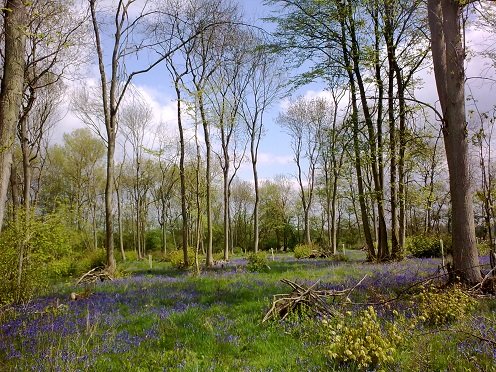|
Woodland management planning and consultancy in Suffolk and EssexWoodland management is vitally important for the health and vitality of one of our most precious natural environments and resources. While nearly 10% of England is covered in woodland, a lot of it is not being managed, often for understandable reasons: *Woodland management plans are important documents, providing confidence, a sense of purpose and allowing access to grant funding. But they are also complex, requiring a technical survey of overall structure and species diversity and dovetailing this to aims and objectives *How does climate change affect woodland management? *Silviculture and forest ecology are complex subjects. What's best for the woodland? *Grants and the legal structure are constantly changing *Engaging contractors might be problematic and expensive *Where to start in finding markets for large amounts of timber or fuel? *And now alarming new diseases seem to keep emerging
Good management will ensure that the trees, plants and animals of woodland are part of a healthy, and vigorous ecosystem. Allowing light into woodland through periodic thinning, regeneration or coppicing benefits wild flowers, improves habitat and maintains species’ diversity. A varied structure of ground flora and young trees and shrubs in dappled light or under a light overstorey provides good, warm cover. The timber crop is given the space needed to maintain growth, and to produce potentially good quality sawlogs for furniture, joinery and building. Carbon productivity is also resumed, absorbing carbon dioxide and mitigating the green house effect. The process of removing timber through woodland operations also provides opportunity for diversifying species composition. As the climate warms and becomes increasingly unpredictable, it is important to increase woodland resilience by having as many tree species and as much variation in structure as possible. Contact Clive Ellis for professional support across all aspects of forest and woodland management: *Sensible planning to suit the woodland and your objectives *Inventory of standing volume and species composition *Grant funding applications and advice *Contract management *Profitable timber sales *Tax advice
|
